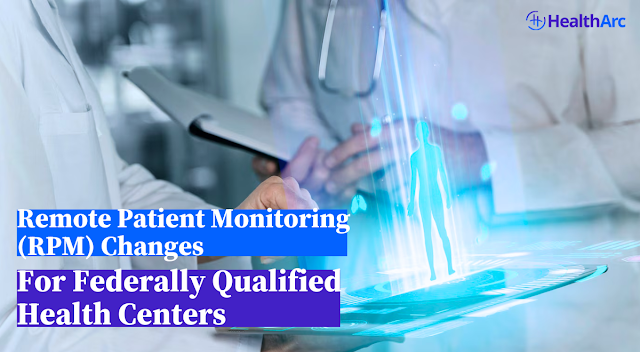Top 5 MTM Software Solutions in 2025: Features, Pricing, and ROI Comparison
1. Why MTM Software Comparisons Matter in 2025
Medication Therapy Management (MTM) has become a cornerstone of modern value-based care.
With CMS tightening quality requirements and expanding reimbursement pathways for programs like Chronic Care Management (CCM) and Principal Care Management (PCM), providers are realizing that choosing the right MTM software can significantly impact both clinical performance and ROI.
The best MTM platforms of 2025 don’t just manage medications — they unify workflows across Remote Patient Monitoring (RPM), Advanced Primary Care Management (APCM), and Behavioral Health Integration (BHI).
This interoperability helps providers deliver safer care, achieve higher quality scores, and optimize billing under CMS’s value-based frameworks.
2. The Criteria for Evaluating MTM Software
To make an informed decision, providers should compare platforms based on:
With these parameters in mind, here’s how the top five MTM software platforms compare for 2025.
3. HealthArc
Overview:
HealthArc is a unified digital care platform that integrates MTM with CCM, RPM, PCM, APCM, and BHI — creating a seamless ecosystem for value-based care.
Key Features:
Automated CMR and medication reconciliation workflows
EHR and pharmacy data synchronization
AI-driven adherence tracking and refill reminders
Built-in CPT billing automation and ROI dashboards
Integration with Remote Therapeutic Monitoring (RTM) for therapy adherence
Pricing:
Starts at $60–$150 per provider/month, with enterprise PPPM (per patient per month) models available.
ROI Potential:
Providers report a 2–4× ROI within six months due to reduced administrative time, higher billing accuracy, and improved adherence.
Ideal For:
Clinics and pharmacies seeking full care coordination — from chronic care to behavioral health.
4. OutcomesMTM (Cardinal Health)
Overview:
One of the oldest MTM programs, OutcomesMTM offers a strong nationwide pharmacist network with payer integrations.
Key Features:
CMR documentation and reporting tools
Medication safety alerts
Patient-pharmacist engagement dashboards
Pricing:
Subscription-based; varies by pharmacy volume.
Limitations:
Primarily designed for retail and community pharmacists
Limited integration with CCM, RPM, or PCM workflows
No built-in ROI analytics dashboard
Ideal For:
Pharmacies participating in payer-based MTM interventions.
5. SinfoníaRx (Omnicare/Tabula Rasa HealthCare)
Overview:
A clinical service provider offering MTM and medication review through its pharmacist network.
Key Features:
Direct pharmacist-led interventions
Comprehensive drug-interaction algorithms
Payer compliance documentation
Pricing:
Service-based; costs depend on patient volume and engagement model.
Limitations:
Not software-driven for in-house providers
Limited customization and data ownership
Ideal For:
Health plans outsourcing their MTM operations to third-party providers.
6. AssureCare MedCompass
Overview:
A technology-first MTM solution focused on large enterprise and hospital systems.
Key Features:
Advanced workflow management
Integration with pharmacy benefit managers (PBMs)
Population-level reporting
Pricing:
Custom enterprise pricing; setup costs can be higher than SaaS-based models.
ROI:
Moderate — strong reporting but slower implementation timeline.
Ideal For:
Health systems with dedicated IT resources and internal MTM teams.
7. Omnisys (Change Healthcare)
Overview:
Cloud-based solution tailored for pharmacy and clinical networks, emphasizing interoperability and analytics.
Key Features:
Real-time data exchange between payers and pharmacies
Medication adherence dashboards
Secure provider-patient communication tools
Pricing:
Tiered subscription model.
Limitations:
Moderate learning curve for smaller practices
Lacks integrated RPM/CCM capabilities
Ideal For:
Enterprise pharmacies with existing MTM infrastructure.
8. Comparative ROI Summary
HealthArc stands out as the only platform offering integrated MTM automation within broader care programs — allowing providers to bill across RPM, CCM, and PCM without switching systems.
9. What Providers Should Prioritize
When comparing MTM platforms, providers should evaluate three key areas:
Interoperability: Integration with EHRs, labs, and other care modules (CCM, RPM, APCM).
ROI Analytics: Ability to quantify outcomes and financial impact.
Scalability: Flexibility to add new modules like BHI or RTM without technical overhaul.
HealthArc meets all three, positioning itself as a long-term partner in value-based transformation rather than just an MTM vendor.
10. Conclusion: The Era of Integrated Medication Management
In 2025, the best MTM software isn’t defined by how many medications it tracks — but by how deeply it integrates into the care ecosystem.
HealthArc’s all-in-one model combines medication therapy management with RPM, CCM, PCM, APCM, and BHI for seamless patient engagement, compliance automation, and measurable ROI.
For providers aiming to future-proof their care delivery, choosing a unified MTM platform like HealthArc ensures both clinical precision and financial sustainability.
Learn more about HealthArc’s integrated MTM ecosystem at HealthArc.io.



%20Changes%20for%20Federally%20Qualified%20Health%20Centers%20(1).png)
Comments
Post a Comment